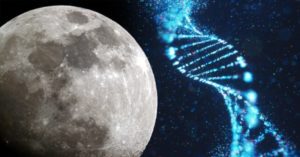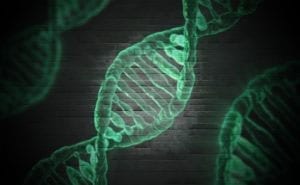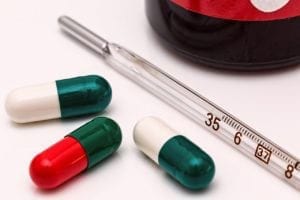Alkaptonuria
What is alkaptonuria?
Alkaptonuria is a rare metabolic disorder that occurs when the body can’t produce enough of the enzyme, homogentisic dioxygenase (HGD). This causes homogentisic acid to build up in the body, which ultimately leads to the bones and cartilage becoming discolored and brittle and a series of other complications.What causes alkaptonuria?
Alkaptonuria is caused by an abnormality in the homogentisate 1,2-dioxygenase (HGD) gene, which prevents the breakdown of homogentisic acid. Even though this acid is generally cleared from the body by the kidneys very rapidly, in alkaptonuria, it slowly accumulates in the body, especially in the connective tissue (cartilage). The mutation responsible for this phenomenon is inherited in an autosomal recessive pattern.What are the symptoms of alkaptonuria?
The buildup of homogentisic acid causes the urine to turn dark blue or black when it is exposed to air, so dark stains on a baby’s diaper is one of the earliest signs of alkaptonuria. However, this change in urine may not occur for several hours and often goes unnoticed, so symptoms of the disease become more noticeable later in life. Early signs of osteoarthritis may occur from brittle bones and cartilage, such as chronic stiffness or lower back/large joint pain, and hardening of the heart valves can lead to aortic and mitral valve disorders or high blood pressure. In addition to these, other symptoms of alkaptonuria include the following:- Dark spots in the sclera (white) of the eyes
- Thickened and darkened cartilage in the ears
- Blue-speckled discoloration of the skin, particularly around sweat glands
- Dark-colored sweat or sweat stains
- Black earwax
- Kidney and prostate stones
How is alkaptonuria diagnosed?
Alkaptonuria is diagnosed after an observation of the characteristic symptoms of the disease and tests to confirm these. Specifically, a laboratory test called a gas chromatography can look for traces of homogentisic acid in a patient’s urine. To confirm a diagnosis of alkaptonuria, a detailed family history may be used and/or DNA testing to check for the presence of a mutated HGD gene.What are the available treatments for alkaptonuria?
There is no specific and guaranteed treatment for alkaptonuria, so treatment is focused on preventing and relieving the possible complications of the disease. These treatment options include:- Anti-inflammatory medications or narcotics for joint pain
- Physical and occupational therapy for treating arthritis
- Surgery to replace a shoulder, knee, or hip or to replace the aortic or mitral heart valves
- Therapies to relieve kidney or prostate stones
Where can I find more information on alkaptonuria?
Alkaptonuria Articles



Scientists Discovered the First Effective Alkaptonuria Treatment
Jessica Lynn
October 14, 2020
Read More »

EMA Gives Positive Opinion on Nitisinone as a Treatment for Alkaptonuria
James Moore
October 6, 2020
Read More »
-300x200.jpg)





